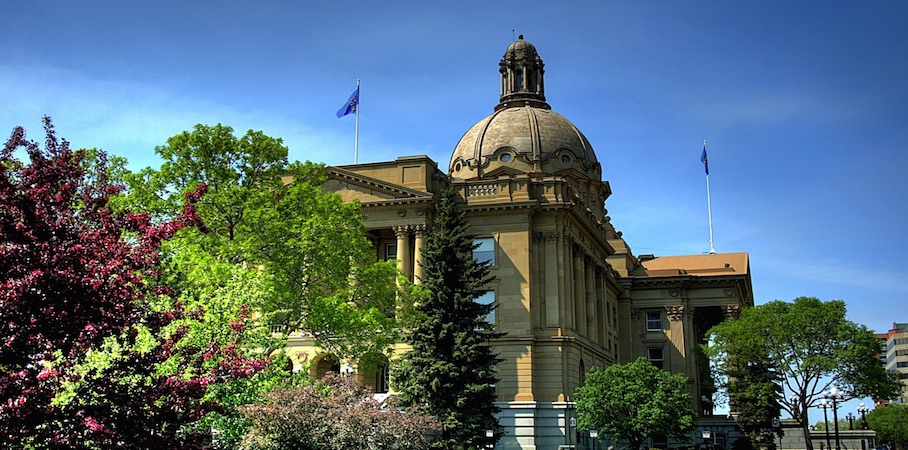
Part Three: Opportunities for Alberta’s Energy Future
Following last month’s GLOBE Conference in Vancouver, Energy Futures Lab Director Chad Park caught up with two members of the Energy Futures Lab Advisory Council, Tzeporah Berman and Toby Heaps, both of whom had important roles at GLOBE and its surrounding events.
The following is part three of the three-part discussion and focuses on specific considerations and opportunities for Alberta’s energy future. Part one explored some of the big international developments that Tzeporah and Toby believe are changing the playing field for the global energy system, while part two focused on infrastructure and policy to guide energy transition.
Chad: Both Tzeporah and Toby are recognized leaders on the global stage in their respective areas of expertise – Tzeporah as a prominent environmental activist and Toby as an expert and advocate in the role of capital markets and institutional investors in sustainable development. They each have strong personal ties to Alberta and also bring a global perspective. Whether or not we agree with all of their views, I believe it is important to consider this perspective as the Energy Futures Lab ponders how Alberta will position itself and evolve in the rapidly changing global energy system.
Toby Heaps is the CEO and Co-Founder of Corporate Knights, CK Capital and the Council for Clean Capitalism. He spearheaded the first global ranking of the world’s 100 most sustainable corporations in 2005, and in 2007 coined the term “clean capitalism.” He sits on the Sustainability Accounting Standards Advisory Board and the University of Toronto’s Environment and Finance Committee. He is also is a member of the Advisory Council for the Energy Futures Lab.
Tzeporah Berman BA, MES, LLD (honoris causa) has been designing environmental campaigns and working on environmental policy in Canada and beyond for over twenty years. She is an Adjunct Professor of York University Faculty of Environmental Studies and works as a strategic advisor to a number of First Nations, environmental organizations and philanthropic foundations on climate and energy issues. Tzeporah co-chairs a small oil industry/ENGO problem solving forum in Alberta on oil sands policy and was appointed last year to the BC Government Climate Leadership Team. She is a member of the Advisory Council for the Energy Futures Lab and is the former co-director of Greenpeace International’s Global Climate and Energy Program and Co-founder of ForestEthics.
Chad: Let’s talk about Alberta. You both know it’s pretty challenging times here and so I guess the first question is, what would be your message in light of everything we’ve just been talking about to Albertans generally and then specifically to the innovators and influencers who make up the EFL fellowship?
Tzeporah: One thing I’ve learned over the past few years is to not avoid the hard conversations. It’s when we open up and listen to the other side that we can find our biases and also points of alignment. For the past two years, I’ve co-chaired an informal problem-solving group of 4 CEOs of oil companies and 4 executive directors of environmental groups. We came together a number of times to just try and understand each other. To try and figure out whether or not we could get on the same page.
As soon as we started talking, we right away realized that in fact we weren’t even having the same conversations. We were talking past each other entirely. We don’t have all the answers but I think we’re now asking the same questions. We are starting to have the same conversation and part of that was in being willing to face the hard stuff and challenge our own biases.
I remember after a particularly hard conversation about climate change, one of the CEOs said, “You know, I didn’t realize that on no other issue do I surround myself with people who agree with me and choose to avoid the conversation.” Similarly, in a conversation with a different CEO, he said to me, “It’s interesting that you have such faith in disruptive technologies and you have no faith in our existing technologies. Fair enough, I realized.
Sure, it was those CEOs and ENGO executive directors that stood on the stage and changed the culture of the conversation by supporting the Alberta Climate Plan. Certainly it was a lot of the kudos go to the Andrew Leach Commission and the Notley government, but what’s really interesting is the polls show today that Albertans support the Plan.
Alberta is an oil jurisdiction that set one of the highest carbon taxes in the world, and no one has all the answers about what that’s going to look like moving forward. But, there has been a dramatic culture shift in Alberta that has also really changed the conversation with the oil industry globally and for Canada nationally. I think if Alberta hadn’t done what it did, we wouldn’t be having the national climate policy conversations we’re having now.
One of the greatest opportunities is for Alberta to become a model for supply side regions in being a climate leader. We can show other resource producing countries how the low carbon transition works. People talk a lot about what’s happening in Norway and while they’ve accomplished a lot, they haven’t addressed how much carbon they’re keeping in the ground. If you compare, our policies now in Alberta to Norway’s policy, they’re pretty strong. Some would say even stronger than what we’re seeing in Norway. I think we have the potential to be a global leader and a model for the rest of the world. I think that’s what we should be.
Toby: I think back to in the ’80s when I was growing up in Alberta seeing the bumper stickers, “please God, let there be another oil boom. I promise not to piss it all away next time.” I think that describes what is happening now. A lot of people I went to school with that had great jobs in the oil patch and were making great salaries, but now it’s really tough times. There are tens of thousands and maybe more people that are affected by this.
There are no easy answers here. Alberta’s modus operandi for too long has been boom to bust.
I think we only have a couple of these booms left so we really had to make the most of them. I know this isn’t comforting to Albertans right now, but we have to say to ourselves, “Okay, we’ve got a few more juicy periods left.” How can we can squeeze this juice and really set ourselves up so have a steady path of upward progress?
When we look at best practices, Norway comes up almost ad nauseam. Norway’s 96% powered by hydropower and one in 5 new cars bought there is an electric car. I think one of the most important lessons, is how they’ve taken the wealth they get from offshore oil and they reinvest that in their hydro, wind and transmission of assets that will provide them dividends well into the future. They invest along paths that will remain when they can no longer depend on the same oil wealth.
I think Alberta has similar potential with its hydro power. There’s abundant hydropower potential for 11,000 megawatts. Instead of making a dash to gas which some are banking on, there’s a huge opportunity to replace coal with water.
Geothermal is also a big opportunity. We hold some drilling technology and expertise if somebody is really going to make the big leap with progress on it. Why not Alberta?
Chad: What a great note to end on. I think you’ve both captured the challenges and also the momentum that’s happening right now in Alberta and right across the globe. It’s been great chatting with you both. Thank you.

Chad Park is the Director of the Energy Futures Lab and Executive Director of the Natural Step Canada





